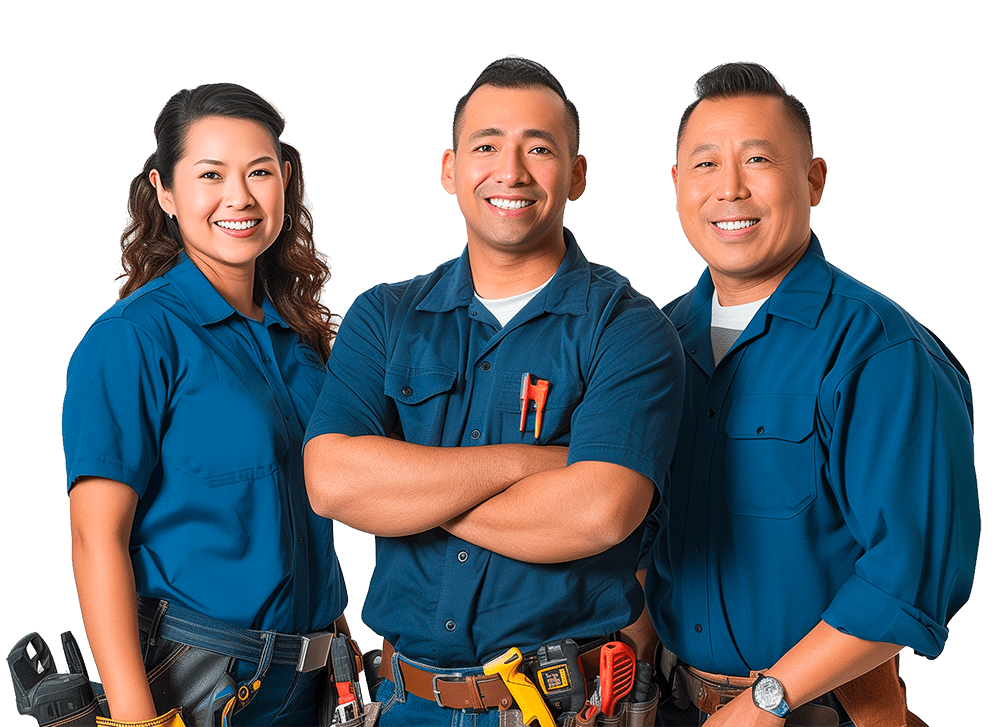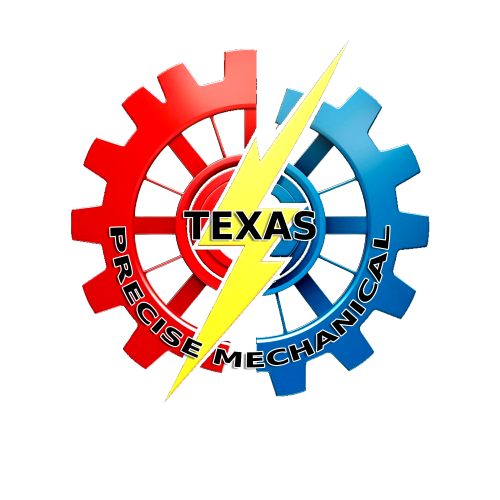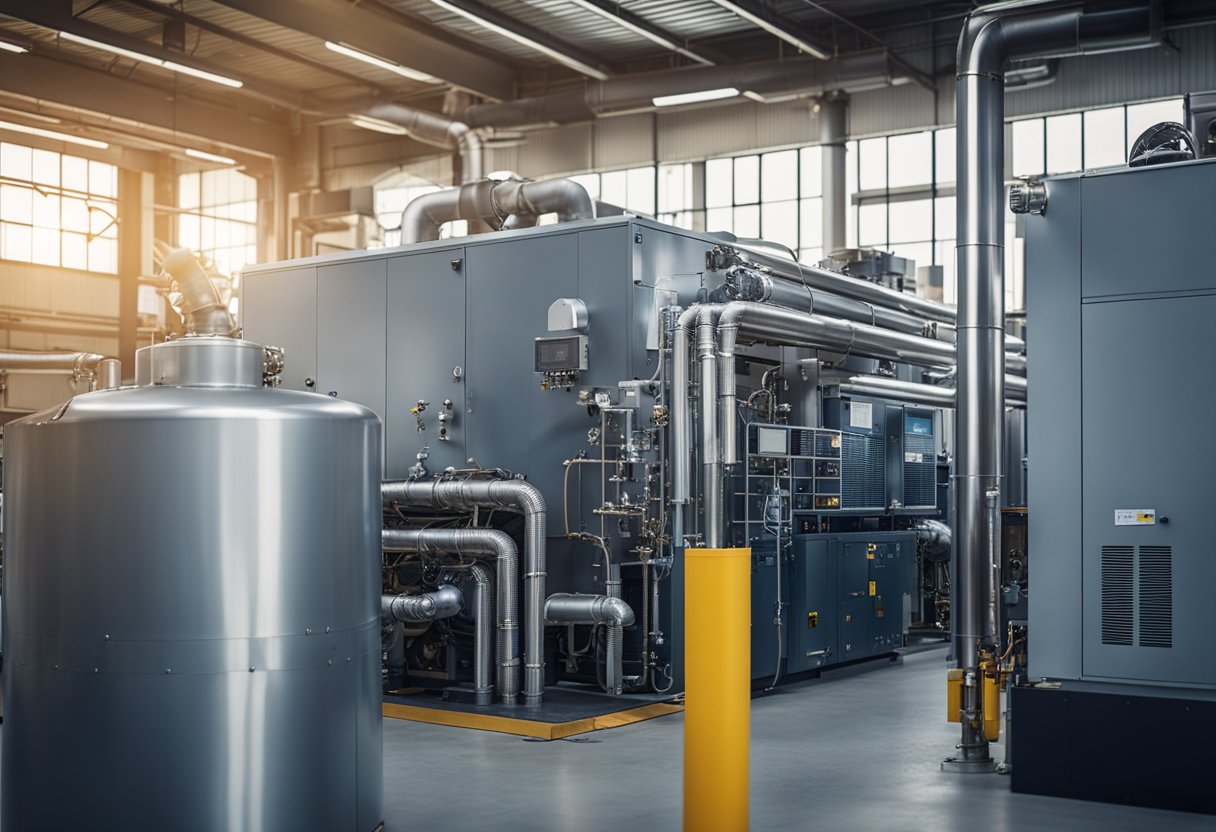Proactive Commercial HVAC Care
Commercial HVAC systems are integral to maintaining a comfortable environment in business settings, providing heating, ventilation, and air conditioning to ensure a consistent indoor climate. The term ‘HVAC’ stands for Heating, Ventilation, and Air Conditioning, encapsulating the various technologies used to control the temperature and purify the air in commercial spaces.
Heating: Commercial HVAC systems often use boilers, heat pumps, or furnaces to generate warm air, crucial for comfort during the colder months.
Ventilation: Proper ventilation is key to maintaining indoor air quality. Systems must effectively circulate and exchange indoor and outdoor air to remove stale air and reduce the buildup of pollutants.
Air Conditioning: Cooling components in HVAC systems are vital for warmer weather, ensuring indoor spaces remain cool and humidity is controlled.
Air Filters: All commercial HVAC systems have air filters that need regular maintenance. Filters trap dust, pollen, and other airborne particles, directly impacting air quality.
To optimize energy efficiency, commercial HVAC units should be properly sized for the space and regularly maintained for peak system performance. Efficient systems not only reduce energy consumption but also prevent overuse and early degradation of components.
Maintenance involves routine checks of:
- Air Filters: Replacement or cleaning to ensure airflow and air quality.
- System Calibration: Adjusting controls to ensure accuracy and efficiency.
- Thermostat settings for optimal performance.
Understanding the complexities and maintenance requirements of commercial HVAC systems is critical. Businesses rely on these systems for creating a safe and comfortable environment that is conducive to productivity and the well-being of occupants.
Routine and Preventative Maintenance
Proactive commercial HVAC care hinges on routine and preventative maintenance—the twin pillars that ensure system longevity and efficiency. A well-crafted maintenance program not only prevents unexpected failures but also sustains comfort levels in commercial environments.
Inspection and Cleaning
Regular inspection and cleaning are critical aspects of HVAC preventative maintenance. Technicians should inspect filters, belts, and coils, ensuring they are not clogged or worn. A clean HVAC system runs more efficiently—a fact that underscores the importance of removing any debris from condenser and evaporator coils. Condensate lines and drainage systems should be checked to prevent water damage and to maintain proper functionality. Air handling units (AHUs) and ductwork are also inspected for any signs of dirt or obstruction that can impede airflow.
- Filters: Check and replace to prevent airflow restrictions.
- Coils: Clean to maintain heat exchange efficiency.
- Belts: Inspect for wear; replace if necessary to ensure proper operation.
- Duct systems: Examine for debris; clean to ensure quality airflow.
Replacement and Repairs
Replacement and repairs form a proactive approach, with technicians identifying and addressing wear and tear before it leads to system failure. Consumable parts like filters and belts may need more frequent replacement, whereas components such as the blower motor and fan blades should be checked for proper operation and repaired if they exhibit issues. Electrical connections within the control box should be secure, and safety controls are tested to validate their efficacy. Refrigerant levels are crucial for compressor performance; thus, ensuring the correct refrigerant level is vital. Lastly, the integrity of the heat exchanger, burner assembly, and ignition system is paramount for safety and performance.
- Thermostats and controls: Regular checks to confirm they are functioning correctly.
- Refrigerant levels: Ensure proper levels to maintain system efficiency.
- Electrical components: Check and repair any faulty components to prevent breakdowns.
- Safety controls: Test to maintain safe operation.
Operational Considerations and Compliance
Facility managers and building owners are tasked with balancing operational and energy costs against the backdrop of stringent compliance requirements. Proactive maintenance plays a pivotal role in this equilibrium, as it not only propels energy savings but also bolsters system longevity and extended equipment life.
- Operational Costs: Intelligent and proactive approaches to facility maintenance can substantially reduce expenses associated with HVAC system operation.
- Energy Costs: Regular tune-ups and thermostat calibration ensure systems run at peak efficiency, translating into notable energy savings.
Environmental responsibility stands as a crucial consideration. Compliance with federal, state, and local regulations on energy consumption and emissions is mandatory. Achieving energy savings through proactive maintenance not only adheres to these regulations but also reflects the facility’s commitment to sustainable practices.
Key components such as filters, belts, and connections require frequent inspection to avoid unexpected failures. Facility managers should schedule regular check-ups to identify areas that may benefit from immediate intervention or gradual improvements.
Advantages of Proactive Maintenance:
- Predict and prevent system outages
- Less downtime, more productivity
- Alignment with environmental standards
- Cost savings from mitigated emergency repairs
In essence, a comprehensive approach to HVAC care guarantees compliance, while fulfilling the dual objectives of cost-effectiveness and environmental stewardship.
System Upgrades and Lifecycle Management
Proactive commercial HVAC care emphasizes the importance of strategic system upgrades and meticulous lifecycle management. The goal is to mitigate the chances of emergency repairs, enhance equipment life, and ensure optimal performance throughout the system’s lifespan.
Replacements and Repairs:
Initiating timely replacements and repairs is crucial for maintaining system integrity. Rather than reactively addressing catastrophic failures, a proactive approach anticipates potential issues, often allowing for scheduled repairs which minimize downtime.
- Predictive Maintenance: Institutions implement predictive maintenance strategies to anticipate needs and schedule interventions.
- Emergency Repairs: These are reduced significantly, as equipment is kept in optimal condition.
Upgrade Solutions:
Upgrades should be customized, aimed at combining modern efficiency with legacy system compatibility. Upgrading HVAC systems is about more than just replacing old equipment; it’s about enhancing system efficiency and longevity.
Installation & Maintenance Programs:
New installations and continuous maintenance are two sides of the same coin. A comprehensive maintenance program ensures systems are not only installed correctly but are also running at peak efficiency.
Through attentive maintenance and lifecycle awareness, companies extend their HVAC system’s lifespan, reduce energy consumption, and optimize the comfort within their facilities. By integrating smart technology and routine servicing, they solidify an infrastructure that supports their immediate needs and future growth.
Benefits of Proactive Commercial HVAC Care
Proactive maintenance of commercial HVAC systems is fundamental in achieving peak performance and cost savings. By implementing a proactive approach, businesses can assure a comfortable environment for their occupants and enhance indoor air quality. Here are the primary benefits of such a maintenance strategy:
-
Cost Savings: Regular, planned maintenance helps avoid unexpected breakdowns and costly emergency repairs. Equipment lasts longer and operates more efficiently, leading to substantial energy savings.
-
Energy Efficiency: Systems that receive consistent maintenance use less energy. This is due not only to running at peak efficiency but also to early identification of issues that could impact performance.
-
Consistent Comfort: Ensuring a comfortable environment is a priority. Proactive care helps maintain consistent temperatures and humidity levels, promoting a pleasant indoor experience.
-
Peace of Mind: Knowing that a commercial HVAC system is routinely checked and maintained provides business owners with peace of mind. There is reassurance in the reliability and functionality of their HVAC equipment.
-
Environmental Responsibility: Energy-efficient operations contribute to a greener footprint. Well-maintained equipment results in reduced energy consumption and, consequently, a lesser environmental impact.
In summary, proactive commercial HVAC care is a holistic maintenance strategy that underpins not just the operational cycle of the equipment but also broader goals such as sustainability and optimized resource usage. Businesses benefit from integrating these practices into their standard operating procedures.
[trustindex no-registration=google]
How can we help you today?
Our team is standing by and ready to help.
Text To Request Service Schedule Today: (281) 898-3773

